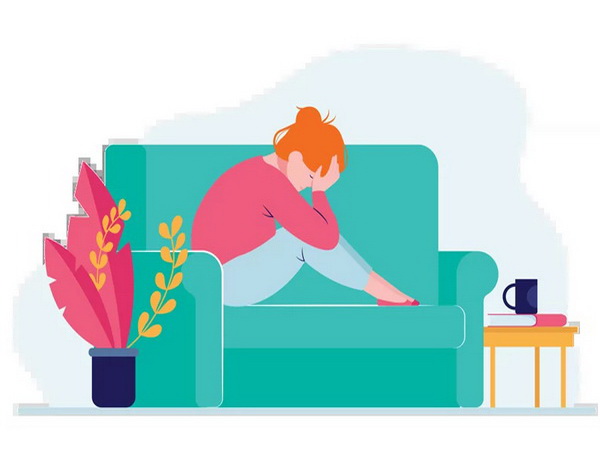Post-Traumatic Stress Disorder

Post-traumatic stress disorder (PTSD) is a mental health disorder that can occur after a traumatic event, such as a threat to life, serious injury, or sexual violence. Sometimes, PTSD can occur in people who hear about trauma that occurs to a close family member or friend. PTSD can happen to anyone at any age.
This condition is more likely to occur in:
- Military servicemen and servicewomen.
- People who are in circumstances where their lives are threatened.
- People who have been the victim of, or witness to, a traumatic event, such as:
- Domestic violence.
- Physical or sexual abuse.
- Rape.
- A terrorist act or gun violence.
- Natural disasters.
- Accidents involving serious injury.
Post-Traumatic Stress Disorder Symptoms
PTSD symptoms may start soon after a frightening event or months or years later. Symptoms last at least one month and tend to disrupt relationships, work, and daily activities. Symptoms of PTSD can be grouped into several categories.
Intrusive symptoms
This is when you re-experience the physical and emotional sensations of the traumatic event
- Having upsetting dreams.
- Feeling fear, horror, intense sadness, or anger in response to a reminder of the trauma.
- Having unwanted upsetting memories while awake.
- Having physical reactions triggered by reminders of the trauma, such as increased heart rate, shortness of breath, sweating, and shaking.
- Having flashbacks, or feeling like you are going through the event again.
Avoidance symptoms
This is when you avoid anything that reminds you of the trauma.
- Losing interest or not participating in daily activities.
- Feeling disconnected from or avoiding other people.
- Isolating yourself.
Increased arousal symptoms
You may have physical or emotional reactions triggered by your environment. Symptoms may include:
- Being easily startled.
- Behaving in a careless or self-destructive way.
- Becoming easily irritated.
- Feeling worried and nervous.
- Having trouble concentrating.
- Yelling at or hitting other people or objects.
- Having trouble sleeping.
Negative mood and thoughts
- Believing that you or others are bad.
- Feeling fear, horror, anger, sadness, guilt, or shame regularly.
- Not being able to remember certain parts of the traumatic event.
- Blaming yourself or others for the trauma.
- Being unable to experience positive emotions, such as happiness or love.
Treatment of Post-Traumatic Stress Disorder
Post-traumatic stress disorder treatment can help you regain a sense of control over your life. The primary treatment is psychotherapy, but can also include medication. Combining these treatments can help improve your symptoms by:
- Teaching you skills to address your symptoms
- Helping you think better about yourself, others and the world
- Learning ways to cope if any symptoms arise again
- Treating other problems often related to traumatic experiences, such as depression, anxiety, or misuse of alcohol or drugs
Psychotherapy
Several types of psychotherapy, also called talk therapy, may be used to treat children and adults with PTSD. Some types of psychotherapy used in PTSD treatment include:
- Cognitive therapy. This type of talk therapy helps you recognize the ways of thinking (cognitive patterns) that are keeping you stuck — for example, negative beliefs about yourself and the risk of traumatic things happening again. For PTSD, cognitive therapy often is used along with exposure therapy.
- Exposure therapy. This behavioral therapy helps you safely face both situations and memories that you find frightening so that you can learn to cope with them effectively. Exposure therapy can be particularly helpful for flashbacks and nightmares. One approach uses virtual reality programs that allow you to re-enter the setting in which you experienced trauma.
- Eye movement desensitization and reprocessing (EMDR). EMDR combines exposure therapy with a series of guided eye movements that help you process traumatic memories and change how you react to them.
Your therapist can help you develop stress management skills to help you better handle stressful situations and cope with stress in your life.
All these approaches can help you gain control of lasting fear after a traumatic event. You and your mental health professional can discuss what type of therapy or combination of therapies may best meet your needs.
You may try individual therapy, group therapy or both. Group therapy can offer a way to connect with others going through similar experiences.
Medications
Several types of medications can help improve symptoms of PTSD:
- Antidepressants. These medications can help symptoms of depression and anxiety. They can also help improve sleep problems and concentration. The selective serotonin reuptake inhibitor (SSRI) medications sertraline (Zoloft) and paroxetine (Paxil) are approved by the Food and Drug Administration (FDA) for PTSD treatment.
- Anti-anxiety medications. These drugs can relieve severe anxiety and related problems. Some anti-anxiety medications have the potential for abuse, so they are generally used only for a short time.
This information is not intended to replace advice given to you by your health care provider. Make sure you discuss any questions you have with your health care provider.

